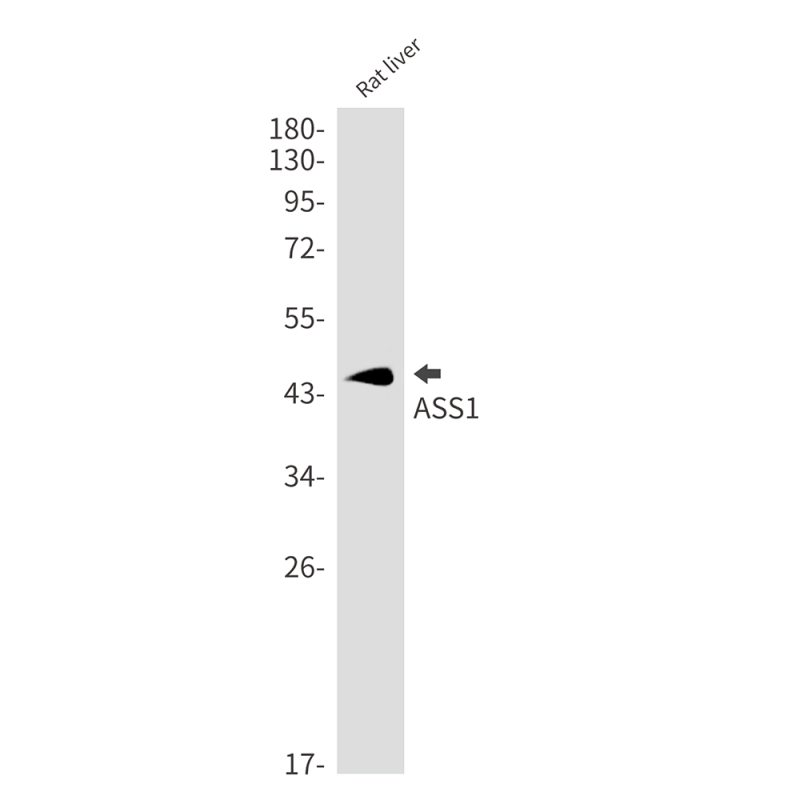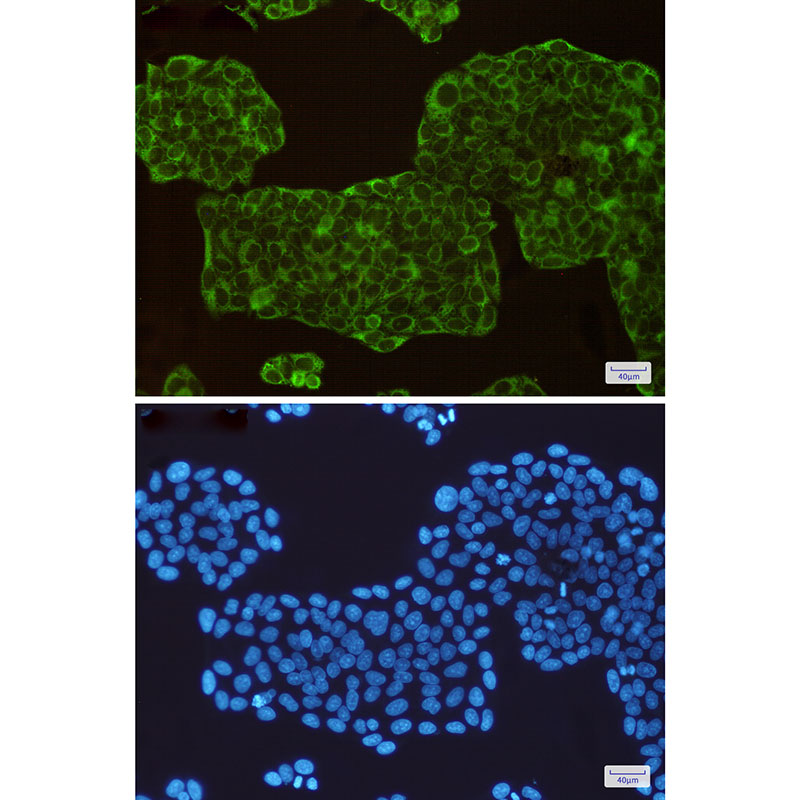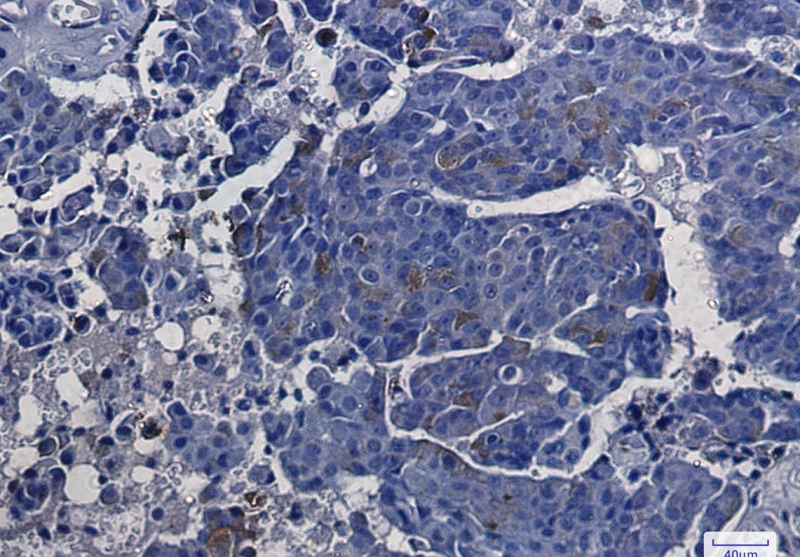



| WB | 咨询技术 | Human,Mouse,Rat |
| IF | 1/20 | Human,Mouse,Rat |
| IHC | 1/50-1/100 | Human,Mouse,Rat |
| ICC | 1/50-1/200 | Human,Mouse,Rat |
| FCM | 咨询技术 | Human,Mouse,Rat |
| Elisa | 咨询技术 | Human,Mouse,Rat |
| Aliases | Argininosuccinate synthase 1; ASS; ass1; ASSA; Citrulline aspartate ligase; CTLN1 |
| Entrez GeneID | 445 |
| WB Predicted band size | Calculated MW: 47 kDa; Observed MW: 47 kDa |
| Host/Isotype | Rabbit IgG |
| Antibody Type | Primary antibody |
| Storage | Store at 4°C short term. Aliquot and store at -20°C long term. Avoid freeze/thaw cycles. |
| Species Reactivity | Human,Rat |
| Immunogen | A synthetic peptide of human ASS1 |
| Formulation | Purified antibody in TBS with 0.05% sodium azide,0.05%BSA and 50% glycerol. |
+ +
以下是3篇关于ASS1抗体的参考文献及其摘要内容的简要列举:
---
1. **文献名称**:*ASS1 deficiency: A novel biomarker in cancer diagnosis*
**作者**:Nicholson, L.J., et al.
**摘要**:研究探讨ASS1在多种肿瘤中的表达缺失现象,利用特异性抗体检测发现其与精氨酸代谢异常相关,提示ASS1可作为癌症诊断及精氨酸剥夺疗法的潜在标志物。
2. **文献名称**:*Role of ASS1 in urea cycle disorders and hepatocellular carcinoma*
**作者**:Erez, A., et al.
**摘要**:通过ASS1抗体分析肝细胞癌(HCC)及尿素循环缺陷患者的组织样本,揭示ASS1表达水平与疾病进展的关联,为代谢异常相关肿瘤的机制研究提供依据。
3. **文献名称**:*Targeting ASS1-deficient cancers with arginine-depleting therapies*
**作者**:Delage, B., et al.
**摘要**:利用ASS1抗体筛选肿瘤细胞,证实ASS1低表达肿瘤对精氨酸酶治疗的敏感性,为个性化抗肿瘤策略开发提供实验支持。
---
**备注**:上述文献为示例性内容,实际引用时需核实原文信息及数据库(如PubMed、Web of Science)的准确性。
The ASS1 antibody targets argininosuccinate synthase 1 (ASS1), a key enzyme in the urea cycle and arginine biosynthesis. ASS1 catalyzes the conversion of citrulline and aspartate to argininosuccinate, a critical step in both detoxifying ammonia and producing arginine. Dysregulation of ASS1 is linked to metabolic disorders, such as citrullinemia type I, an autosomal recessive disease caused by mutations in the ASS1 gene, leading to hyperammonemia and neurological complications.
In cancer research, ASS1 has gained attention due to its frequent downregulation in various tumors, including hepatocellular carcinoma, melanoma, and mesothelioma. Loss of ASS1 expression renders cancer cells auxotrophic for arginine, making them vulnerable to therapies that deplete extracellular arginine, such as pegylated arginine deiminase (ADI-PEG20). ASS1 antibodies are widely used in immunohistochemistry, Western blotting, and ELISA to assess ASS1 protein levels in tissues or cell lines, aiding in diagnostic classification and research into arginine metabolism-related therapies.
Additionally, ASS1 expression status serves as a potential biomarker for predicting therapeutic responses to arginine deprivation strategies. Studies also explore its role in immune modulation and tumor microenvironment interactions. The ASS1 antibody thus serves as a vital tool for both understanding ASS1-associated pathologies and developing targeted treatments for ASS1-deficient cancers.
×